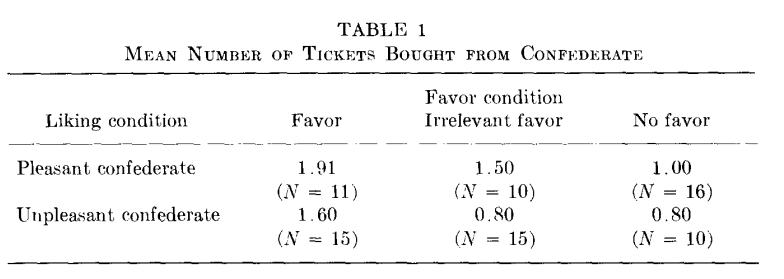The message above, although blunt, illustrates the use of
the technique norm of reciprocity (Pratkanis, 2007) to force a friend into compliance.
Conducting a favour for someone, which in this case was increasing the number
of ‘likes’ on her instagram photos, helps trigger an automatic feeling of
indebtedness and obligation in the subject. This feeling of social obligation
is thus exploited, to force the subject into conducting the desired course of
action in order for them to be able to resolve the unsatisfactory feeling of
being in debt.
A study conducted by Regan (1971) helps demonstrate this
technique. In this experiment, a confederate and a participant were asked to
evaluate paintings. During a break from this tedious task, the confederate
either bought a coke for himself and the participant (to invoke the social norm
of reciprocity) or just bought a coke from himself (control). After the
painting evaluation task had finished, the confederate asked the participant
whether they would like to buy some raffle tickets he was selling; this was the
dependent variable.
As the table below portrays, regardless of whether the
confederate was pleasant and likeable or not, giving the subject a coke and invoking the norm of reciprocity encouraged participants’ to buy a
significantly greater amount of raffle tickets than those who were not given a
coke.
Figure 1. Results from Regan (1971), demonstrating the increase in compliance due to a favour.
In other words, doing someone a favour triggers the social
norm for reciprocity which increases the likelihood of them complying with a later
request. This is true even for favours that are possibly unwanted like a soft
drink. If this is the case, it is not hard to see how my blunt invocation of
the norm of reciprocity worked on my best friend.
Pratkanis, A. (E.d.) (2007). The Science of Social Influence: Advances and Future Progress. Psychology Press.
Regan, D. T. (1971). Effects of a favour on liking and compliance. Journal of Experimental Social Psychology, 7, 627-639.



No comments:
Post a Comment
Note: Only a member of this blog may post a comment.